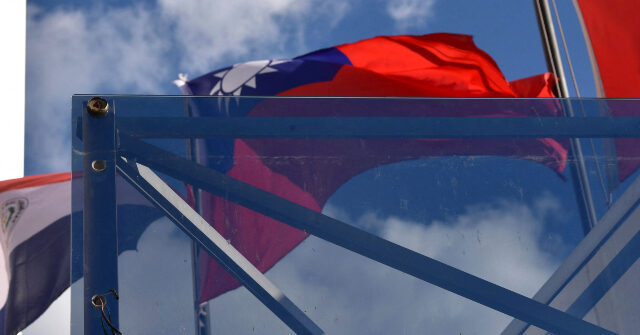Taiwan’s government budget proposal for the coming fiscal year includes a $32.8 million spending increase for the Department of Latin American and Caribbean Affairs, raising the department’s budget by almost 20 percent to a record $177 million.
The increased funding is intended for the “Allies Prosperity Project,” an initiative that began last year under Foreign Minister Lin Chia-lung to strengthen Taiwan’s alliances with other nations.
The Allies Prosperity Project finances publicity campaigns, workshops, university and think-tank projects, non-governmental organizations (NGOs), and travel for influential guests from Latin America and the Caribbean to visit Taiwan.
Strengthening these alliances is important for Taiwan because Communist China is working hard to strip Taipei of its allies. The People’s Republic of China (PRC) has invested vast sums of money and diplomatic capital in persuading developing nations to shift their diplomatic relationships from Taipei to Beijing.
Since 2016, China has been able to convince ten countries to de-recognize Taiwan: Sao Tome and Principe, Panama, El Salvador, the Dominican Republic, Burkina Faso, the Solomon Islands, Kiribati, Nicaragua, Honduras, and most recently Nauru.
There are now only 11 countries that have diplomatic relations with Taiwan. Six of them are in Latin America and the Caribbean: Guatemala, Haiti, Paraguay, St. Lucia, St. Kitts and Nevis, and St. Vincent and the Grenadines.
The United States does not officially recognize Taiwan, having shifted its recognition to Beijing in 1979, but the U.S. is strongly supportive of Taiwanese autonomy.
Taiwan’s alliances are fortified by heavy trade, led by Taiwan’s world-class semiconductor and high technology industries. One of the objectives for the Allies Prosperity Project is to make allied nations more prosperous so they can import more Taiwanese goods.
Lin said last week that the project’s current operations include:
[C]ollaborating with Paraguay to develop an integrated hospital information system (HIS) to enhance nationwide medical information management; partnering with Eswatini on an oil reserve facility project to strengthen energy security and stimulate local industry; and assisting Palau in becoming a smart and sustainable island nation to exemplify Taiwan’s commitment to sustainable international cooperation.
Riffing on the importance of Taiwanese semiconductors, Lin invited the world to “chip in” by “recognizing Taiwan’s rightful place on the world stage and embracing the contributions it has to offer.”
Lin suggested a concrete step in the right direction would be overcoming Communist China’s resistance to allowing Taiwan to participate in United Nations functions. The U.N. invariably bows to Chinese pressure to exclude Taiwan, and did so even during the global coronavirus pandemic.
In August, a bipartisan group of U.S. senators introduced a bill called the U.S.-Taiwan Partnership in the Americas Act that would “counter efforts by the People’s Republic of China to coerce or pressure” Latin American and Caribbean nations into breaking their ties with Taiwan.
“China’s campaign to bully countries into abandoning Taiwan is part of its broader effort to reshape the global order through coercion and backroom deals,” said sponsor Sen. Jeff Merkley (D-OR).
“This bipartisan bill pushes back by supporting governments that choose to maintain ties with Taiwan and makes clear that every nation should be free to choose its partners without fear of retribution from Beijing,” he said.
“Communist China would like nothing more than to force unification without war. That’s why one of Beijing’s key objectives is to isolate Taiwan diplomatically through economic statecraft and coercion,” said co-sponsor Pete Ricketts (R-NE).
Read the full article here


